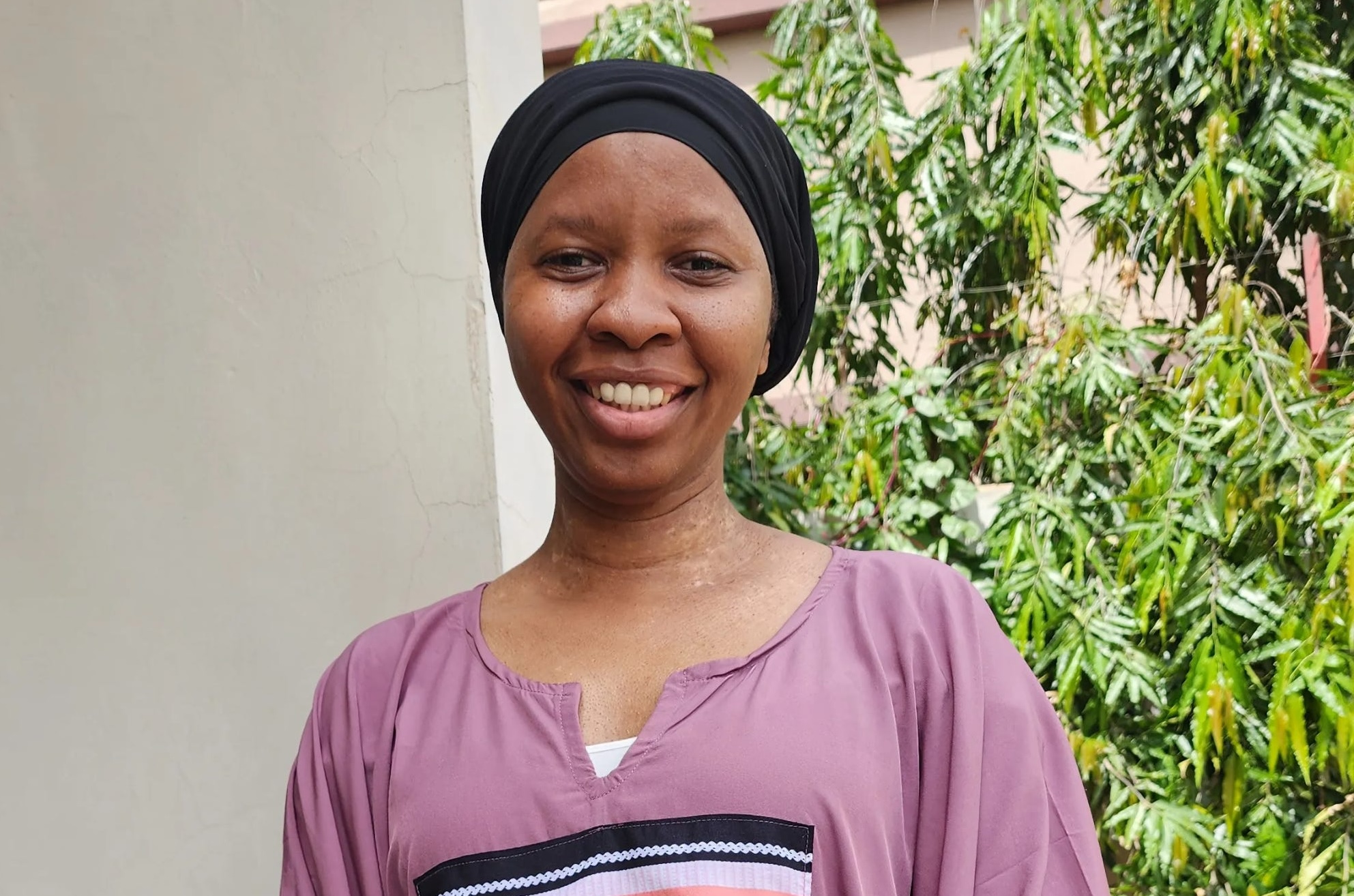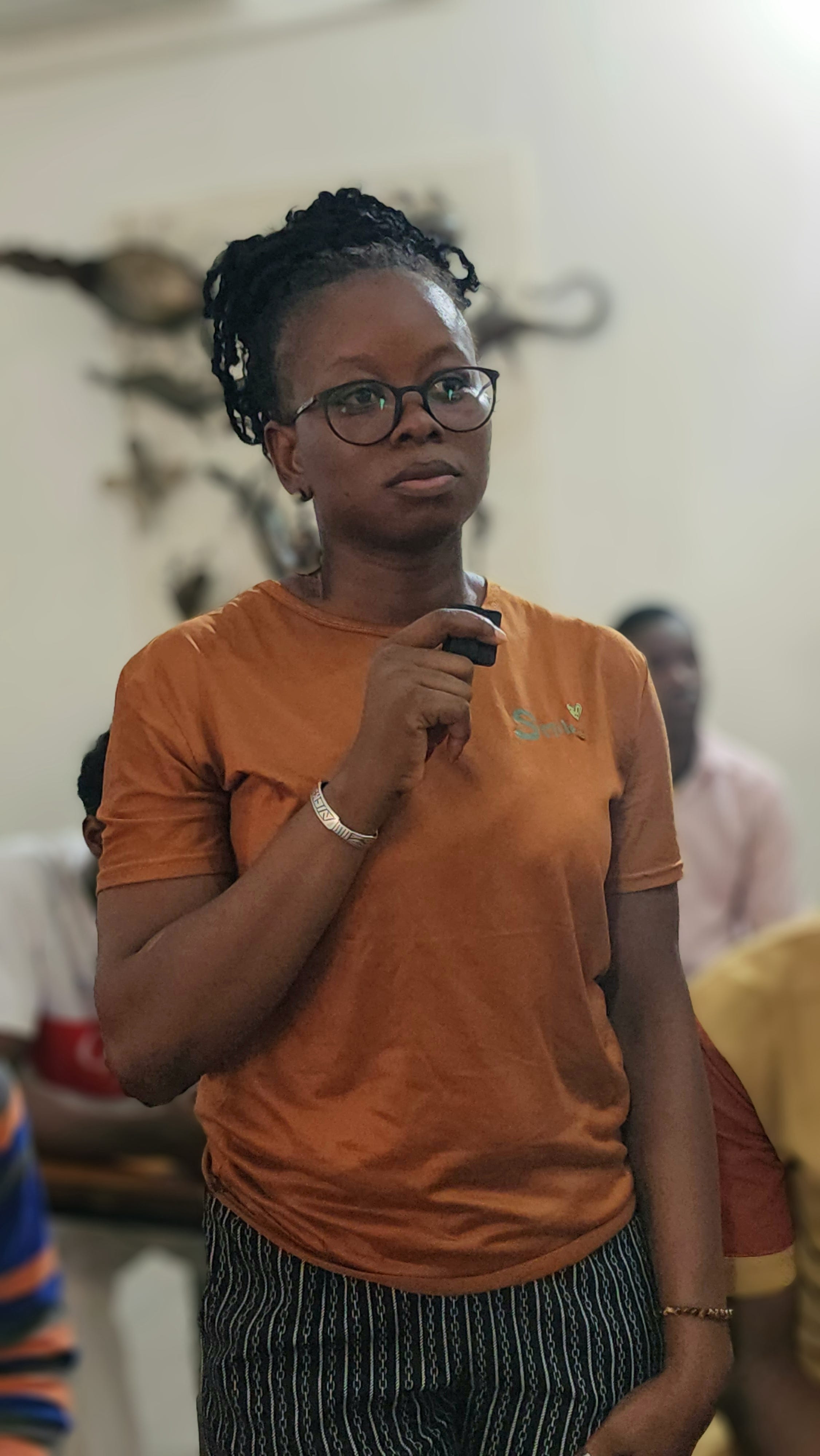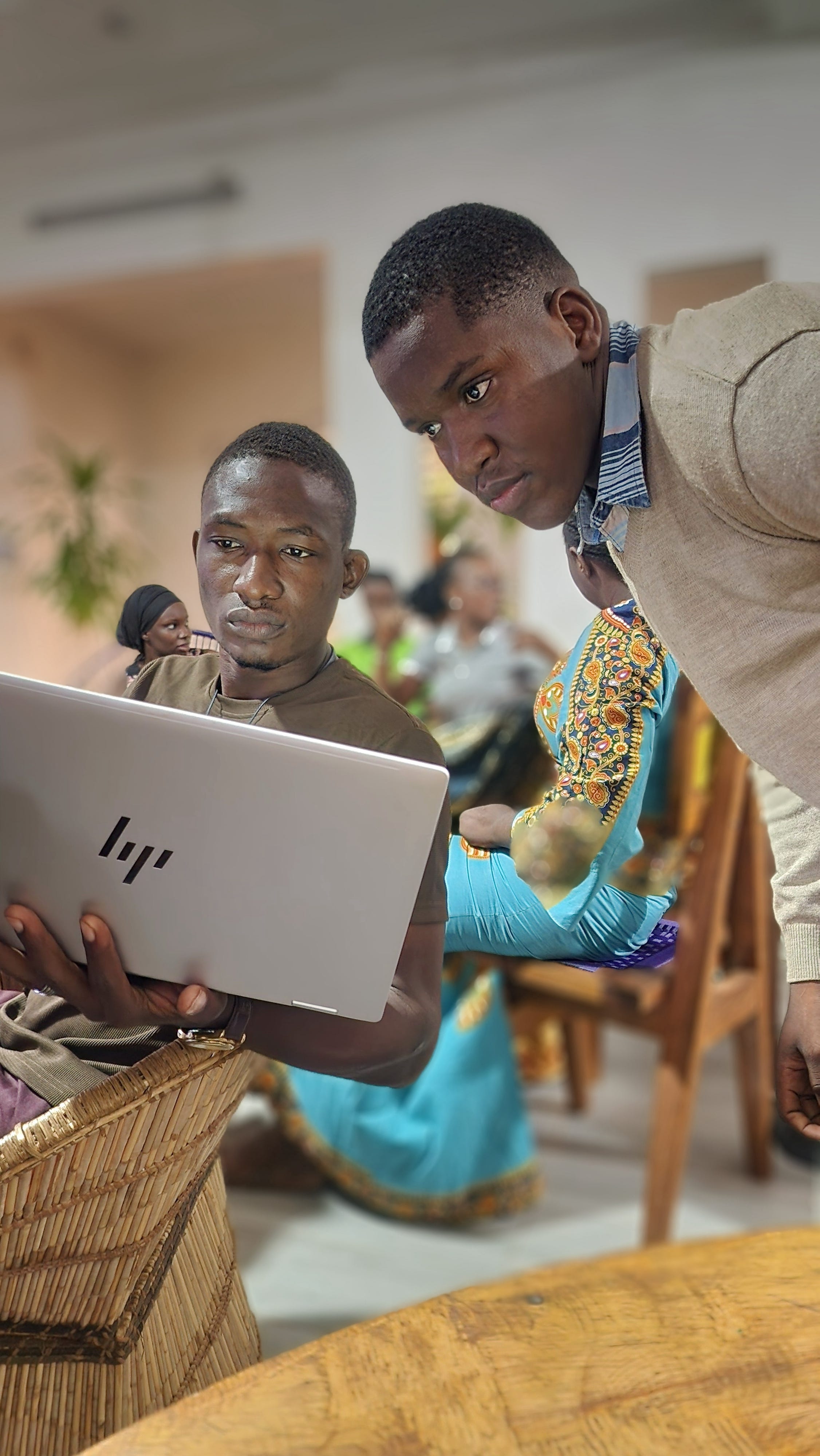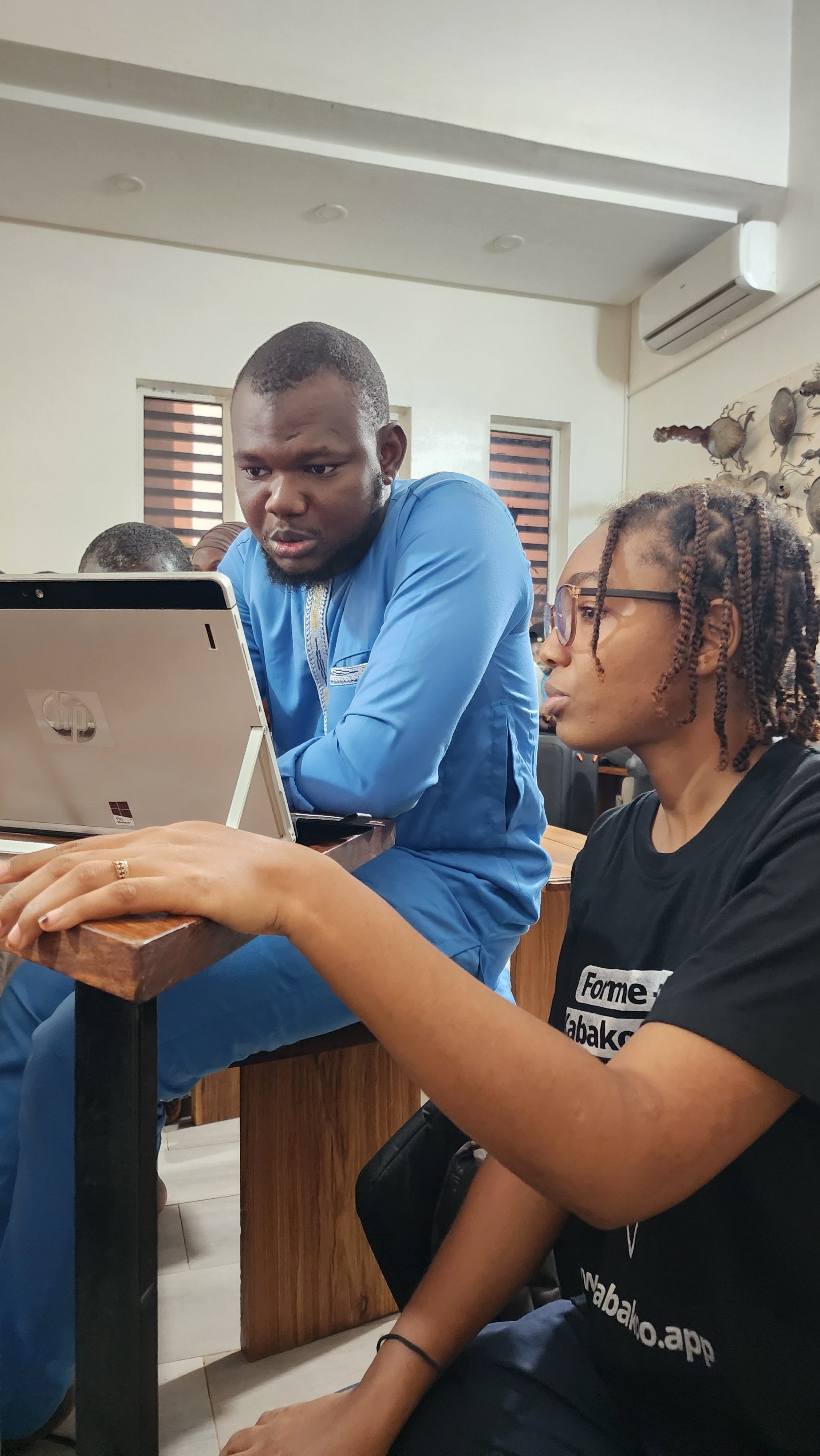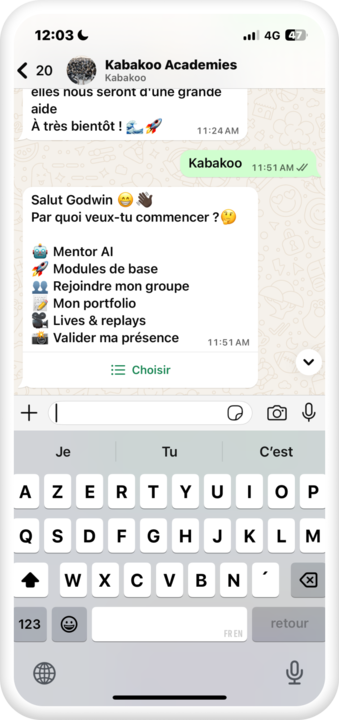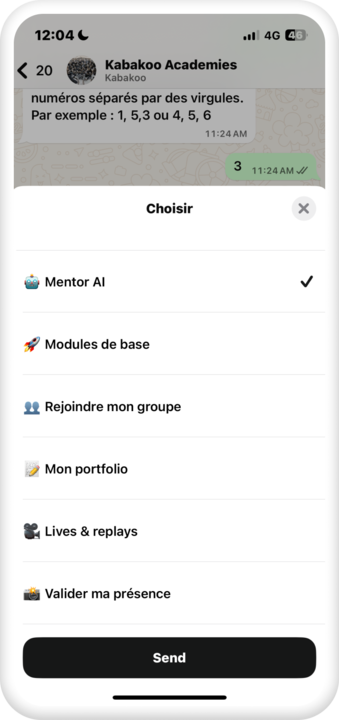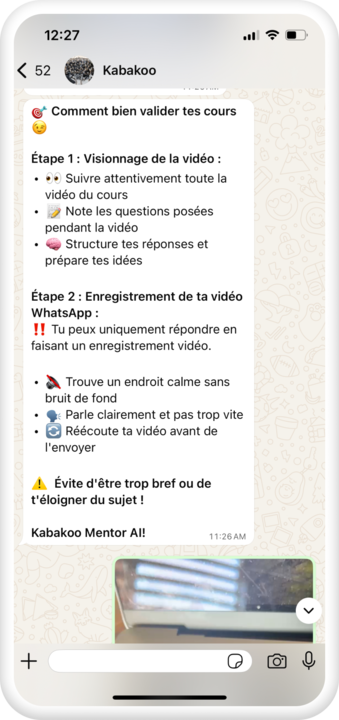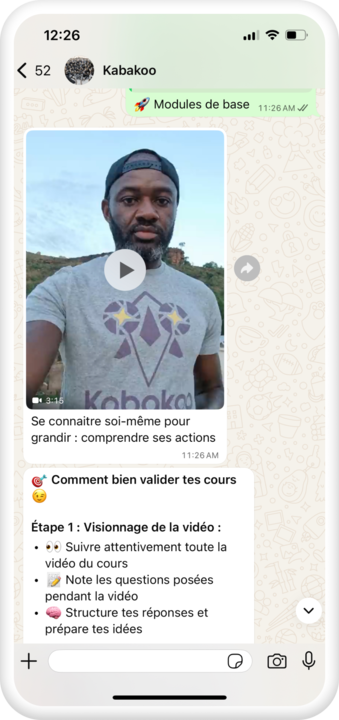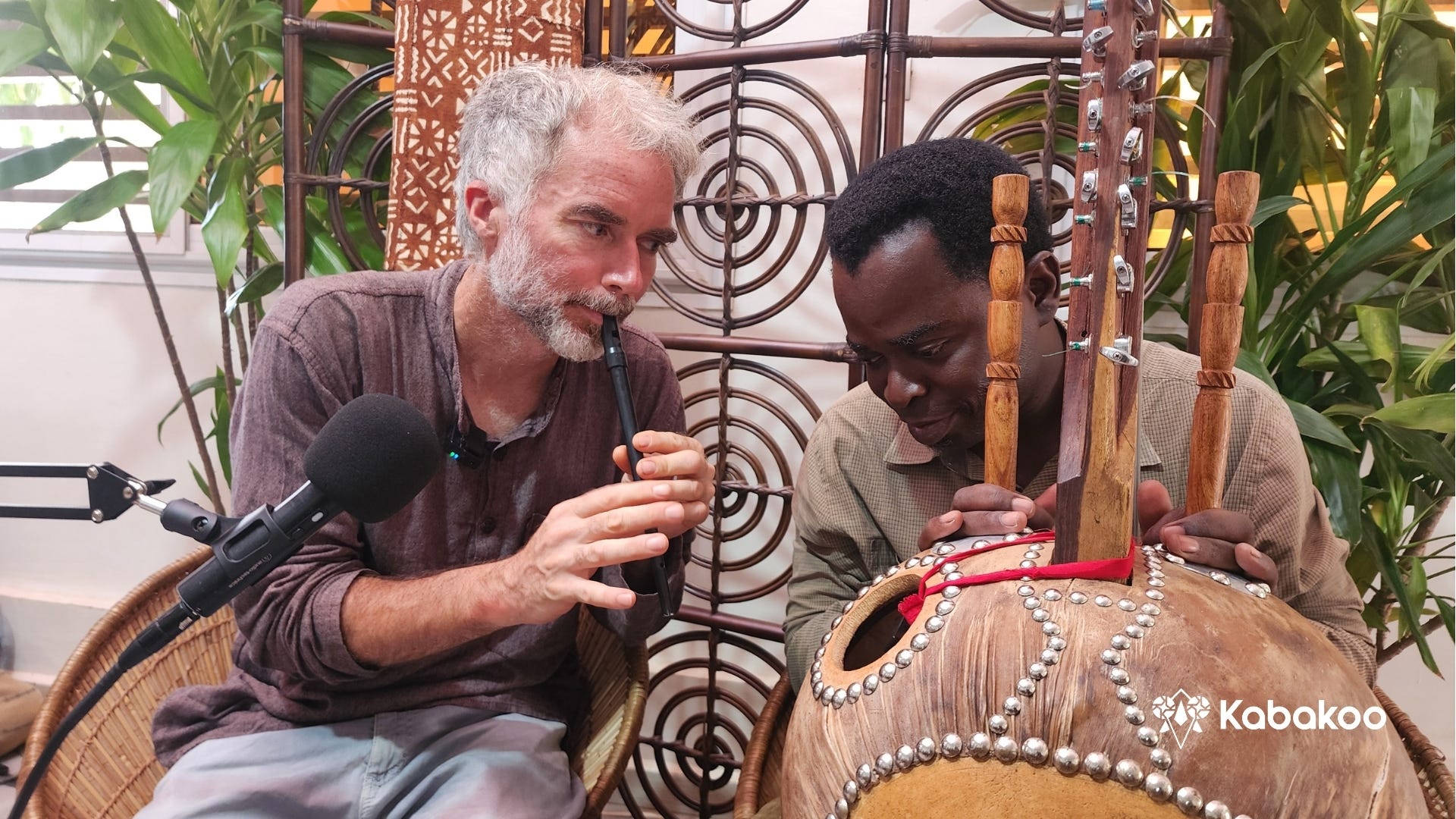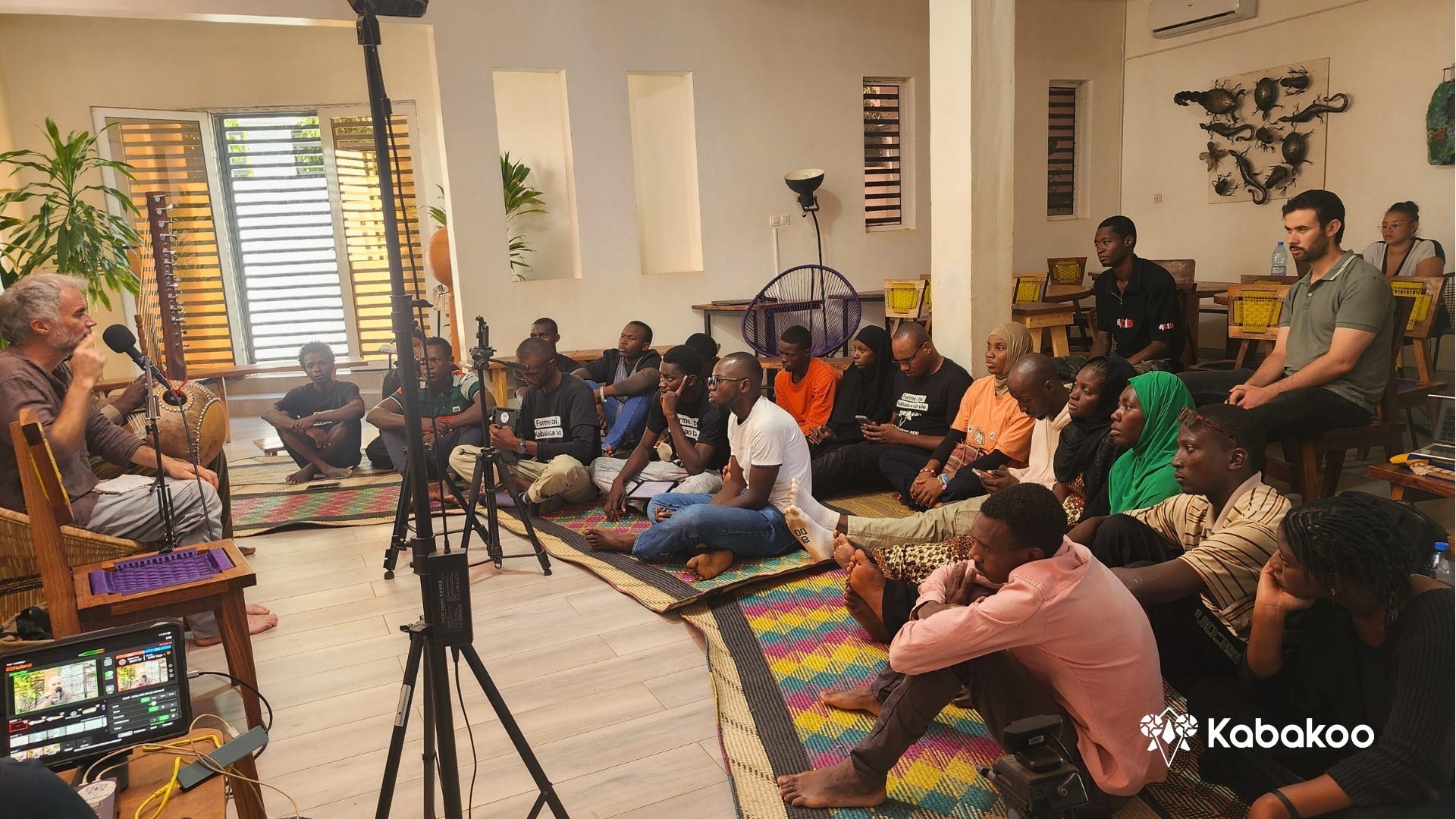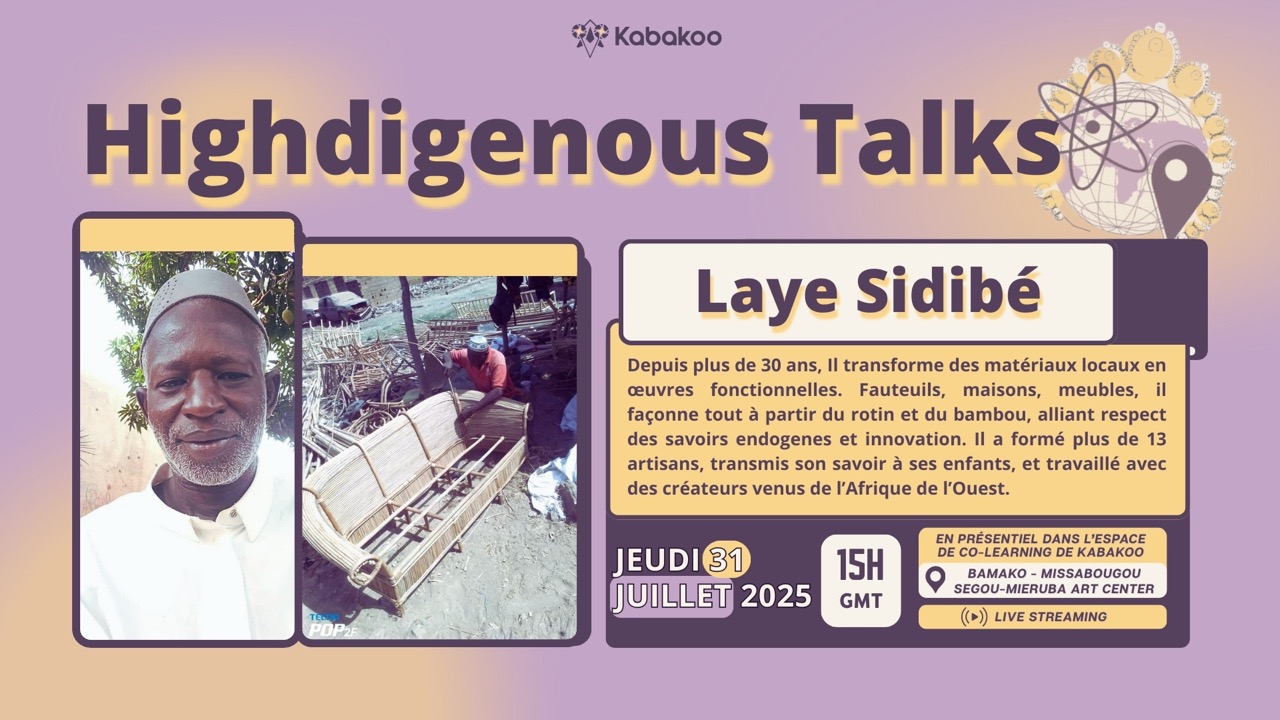Welcome to our newsletter about our activities, wins, failures, and learnings over the last weeks.
First things first, as always, let’s start with our song of the month.
🎶 This time we are vibing on “Café” by Franco Luambo Makiadi aka “Le Grand Maître” aka “Le Sorcier”, performed with his band TPOK Jazz. Let yourself be swayed by Franco and this piece of Congolese rumba, a smoothing blend of musical storytelling and Afro-Cuban groove.
What are we building?
Kabakoo designs and scales evidence-based pathways for West African youth, integrating AI, community, and cultural insights to foster the mindset and skills essential for building productive livelihoods and driving systemic change in informally dominated economies.
☀️ June 2025 Highlights
In our previous newsletter, we shared the excitement of launching OSC Numérique, our newest cohort dedicated to upskilling youth from Malian Civil Society Organizations (CSOs). The program officially took off!
Participating organizations include well-known networks like Association des Jeunes pour la Citoyenneté Active et la Démocratie (AJCAD) Mali (Youth Association for Active Citizenship and Democracy), the Association des Blogueurs du Mali (Mali Bloggers Association), and 3 gender-focused CSOs that prioritize women’s civic rights and inclusion. We are happy to share that 48% of this cohort identified as women.
This cohort is also piloting our WhatsApp-based learning system, which will be detailed in the next section of this newsletter.
From participation dynamics to content engagement, we’re tracking what works, what doesn’t , adjusting in real time to improve both the experience and the outcomes.
We’re especially excited about how this cohort brings CSOs into the Kabakoo learning ecosystem, not just as learners ‘providers’, but as active co-designers of the learning experience. We will also be introducing these organizations as institutional guarantors. Traditionally, our guarantor system relies on family members or close relatives to help learners stay committed throughout their journey. But in this cohort, we’re testing an experimental variant: CSO leaders acting as guarantors for a subset of participants. The goal is to A/B test whether this form of institutional accountability leads to stronger learner engagement: higher completion rates, better attendance, and reduced drop-offs. If effective, this approach could become a key lever for scaling up learning ecosystems, where organizations also help carry learners through the program.
From hypothesis to pilot: building a WhatsApp-based learning system
Last year, we ran a survey to understand trust and influence dynamics among the youth in Mali. One striking result was the high level of trust conferred to WhatsApp as a source of information. Since then, we have been pondering about what to do with that result, beyond using WhatsApp as a mere communication tool for sending reminders or delivering automated support. Our main question is whether WhatsApp, the most familiar and trusted digital space for the urban youth we serve, can become the main interface for our learning experience. In other words, can the Kabakoo Learning Experience meet the youth where they already are?
Testing the waters : WhatsApp Activation Sprint
To test this, we ran what we coined a WhatsApp Activation Sprint; a time-limited experimental rollout involving 2,470 users split across three thematic tracks: entrepreneurship, personal development, and digital marketing.
The goal was to validate learner behaviors, engagement dynamics, and drop-off patterns on WhatsApp-based learning delivery.
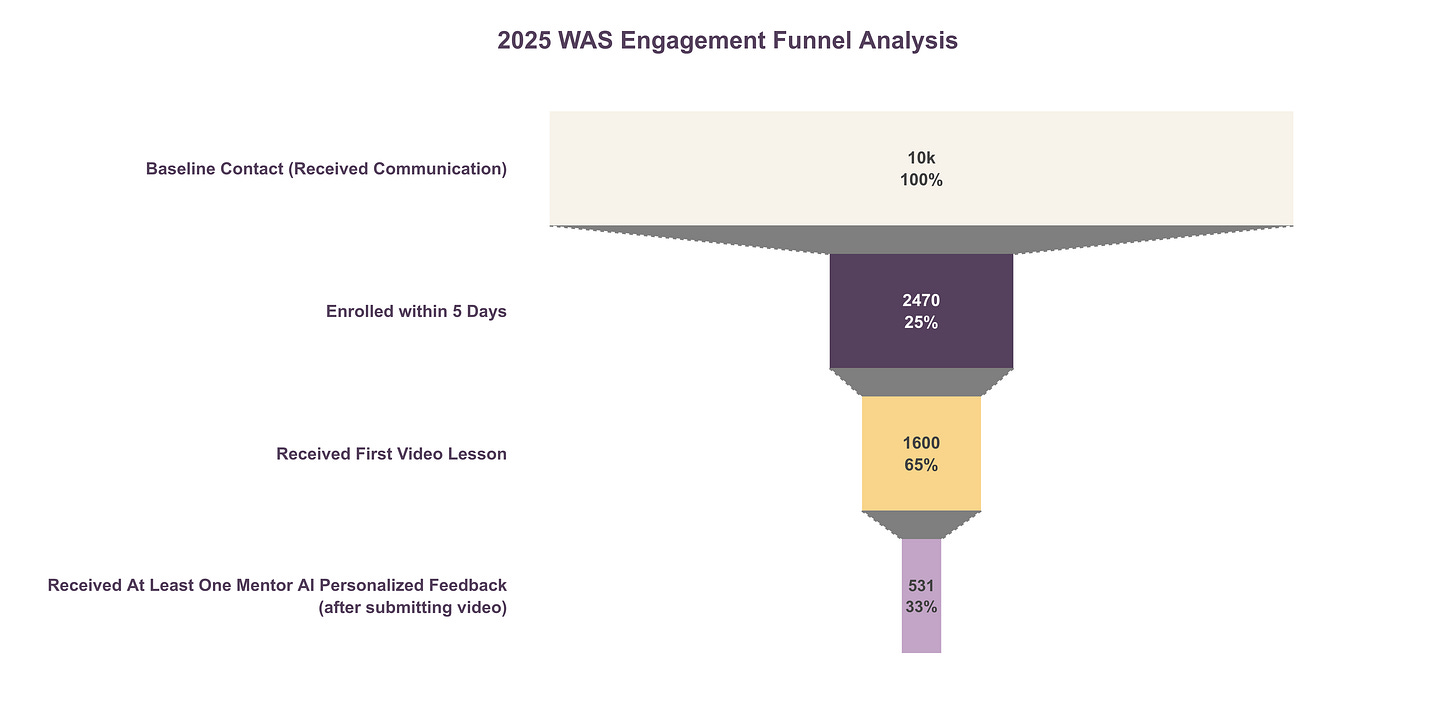
Key findings from the sprint:
- WhatsApp: a high-impact, trusted channel. Over 2,470 learners enrolled in just five days, from a base of 10,000 messaged contacts. This demonstrates WhatsApp’s potential for fast activation. Additionally, the Kabakoo Learning Experience could be technically delivered via WhatsApp, as shown by the 531 learners who received video material and at least one personalized feedback from our AI Mentor during this test sprint. However, doing so efficiently requires a robust and versatile delivery system; something we’re actively refining.
- The user experience (UX) wasn’t where we expected it. More than 90% of engagement occurred within the first 48 hours, many learners appreciated the conversational tone, flexible pace, and practical edge of our WhatsApp learning experience. But the data (and our support inbox) told us something more nuanced: ease of access didn’t mean ease of use. Over 60% of the 2,463 learners clicked “Start course,” received the first short video input… and then stopped. Our assumption that WhatsApp’s familiarity would naturally translate into a seamless learning process via WhatsApp was wrong. A lack of clear onboarding checkpoints (e.g. “Here’s what to expect,” “You are here,” “Next up…”) made the journey feel disorienting for many. In focus groups, several learners confided that they didn’t understand what to do, even when peer guidance in the group was present and correct. We learned that clarity is crucial: shorter, sharper instructions, well-paced transitions, and structured feedback flows. This meant not just UX but also learning design.
- The power of peer dynamics. One of the most surprising and happy findings was just how naturally learners started helping each other in the WhatsApp groups we set up for the different tracks. Some learners explained instructions in simpler terms, others dropped screenshots to guide their peers, and many contributed with encouragement or shared their wins. 11.8% of all shared messages in the groups were messages from learners helping their peers to navigate the process. This amount of supportive and helping message is extremely high. In fact, it was not planned to have even a single such message in those groups strictly dedicated to thematic discussions about learning content. This authentic peer support created a real “community effect,” in groups, where engagement stayed high and drop-off rates were lower.
- Entrepreneurship: still the #1 learning driver. Our WhatsApp Activation Sprint also provided fresh evidence for something we’ve long observed: entrepreneurship remains the most magnetic entry point for youth engagement. Among the three learning tracks offered, entrepreneurship attracted the most sign-ups (938 learners), followed by “Personal Development” (what we internally called mindset-work, 802) and Digital Marketing (730). This validates Kabakoo’s focus on building agency through action-oriented entrepreneurial learning, as a practical, trusted pathway for economic progress and creative expression.
This WhatsApp Activation Sprint allowed us to gather live, contextual evidence to guide product and content redesign. It revealed not just the potential of WhatsApp as a learning medium, but also its unique constraints, and the importance of continuous learner support.
From Sprint to System: Launching the WLS
Equipped with these insights, we launched a very early pilot of a WhatsApp Learning System (WLS) as part of the new cohort ‘OSC Numérique’ discussed above.
Between June 23 and 30 alone, over 700 learning-focused messages (such as assignments submissions or feedback requests) were exchanged between learners and the system by the members of a cohort of less than 200. In total, more than 6,000 messages were exchanged across our WhatsApp Learning platform during the month of June. We see this as signs of meaningful engagement.
We are actively working on how to better support learners throughout their journey; clearer onboarding, simplified message flows, platform-attuned overall upskilling strategy, more structured guidance, etc. Our goal is to make learning on WhatsApp not only accessible and familiar, but also intuitive and effective.
By leveraging a platform that’s already deeply integrated into our learners’ daily lives, we can dramatically reduce adoption barriers while maintaining quality and engagement—allowing us to scale our impact exponentially without proportional increases in operational complexity.
And by the way, we are currently raising funds for this WhatsApp-based initiative, with the goal of producing an open-source playbook on how to leverage WhatsApp for cost-effective upskilling and livelihood interventions. If you are interested in supporting this initiative, please reach out. Also, and no less important: if you know an organization interested in using our WhatsApp-based experience in their program, we are happy to share it. The more, the merrier 🙂
What if… we waited? Testing timing to boost learner engagement
As part of onboarding learners into our above described ‘OSC Numérique’ cohort, we wanted to understand the impact of timing on survey completion. The baseline survey (T0) is a comprehensive 25-35 minute assessment that collects critical pre-intervention data on learners’ socioeconomic status, mindset, income, and behavioral indicators. We wondered whether we should we send this important survey immediately after registration, or wait a few hours.
So, we ran a little experiment with 177 participants. Half received the form right away (the “Now” group), the other half got it 8 hours later (the “Delayed” group). The idea behind the the 8-hours-frame was that someone who completes the pre-inscription at night, would receive the form the next morning, while someone who pre-registered during the morning would received it during the evening/night.
Here the main insights:
- Completion rates were nearly identical: 86% for Now, 81% for Delayed; meaning delaying didn’t hurt motivation.
- But timing shaped behavior: The Delayed group actually completed the form faster, both in terms of the shorter time gap between receiving and filling it out, and the total time spent working on it (33 minutes versus 52 minutes for the Now group).
- Learners may perform better when the task hits them after rest, not right after another cognitive action.
- Before any reminders, 75% of the Now group and 80% of the Delayed group had already submitted their forms. Even with odd delivery hours, the delayed group performed ahead.
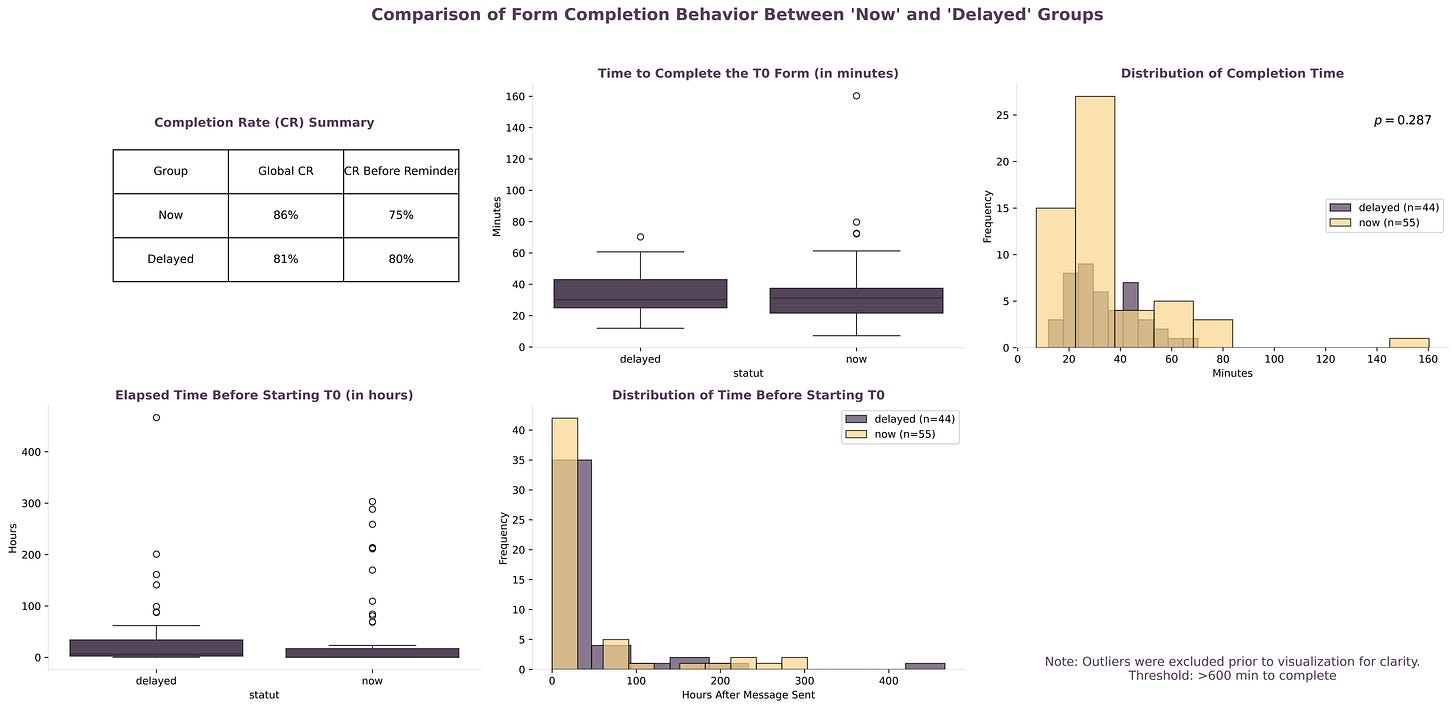
What’s the takeaway?
Our findings have some implications for learning design. For simple forms or when we want to capitalize on learners’ initial enthusiasm, sending tasks immediately might work well. But if the task requires deeper thinking — like a self-evaluation or mindset questionnaire — it might be better to let learners breathe, reflect, and then engage with the material.
This might seem like a minor tweak. But these evidence-driven micro-decisions are what make the Kabakoo Learning Experience more than just content delivery. It’s built to be contextual, human-centered, and grounded in how, when, and where those we serve actually learn.
Radical care through tales and strings
To close this intense month, we unplugged. From screens. From deadlines. To gather around stories.
We had the honor of welcoming Samuel Allo, a traveling storyteller whose voice has carried tales across continents. With him, Toumani Kouyaté and his kora offered a musical echo, weaving notes into the tales. And we listened, as a team, as a community. In the heart of a busy weekday, we took the time to afford some stillness.
‘Work hard, play hard’, they say. ‘Work hard, play hard, care harder’, we say.
Kabakoo Faces
(With over 35,125 registered learners, each month we spotlight a member of our vibrant community.)
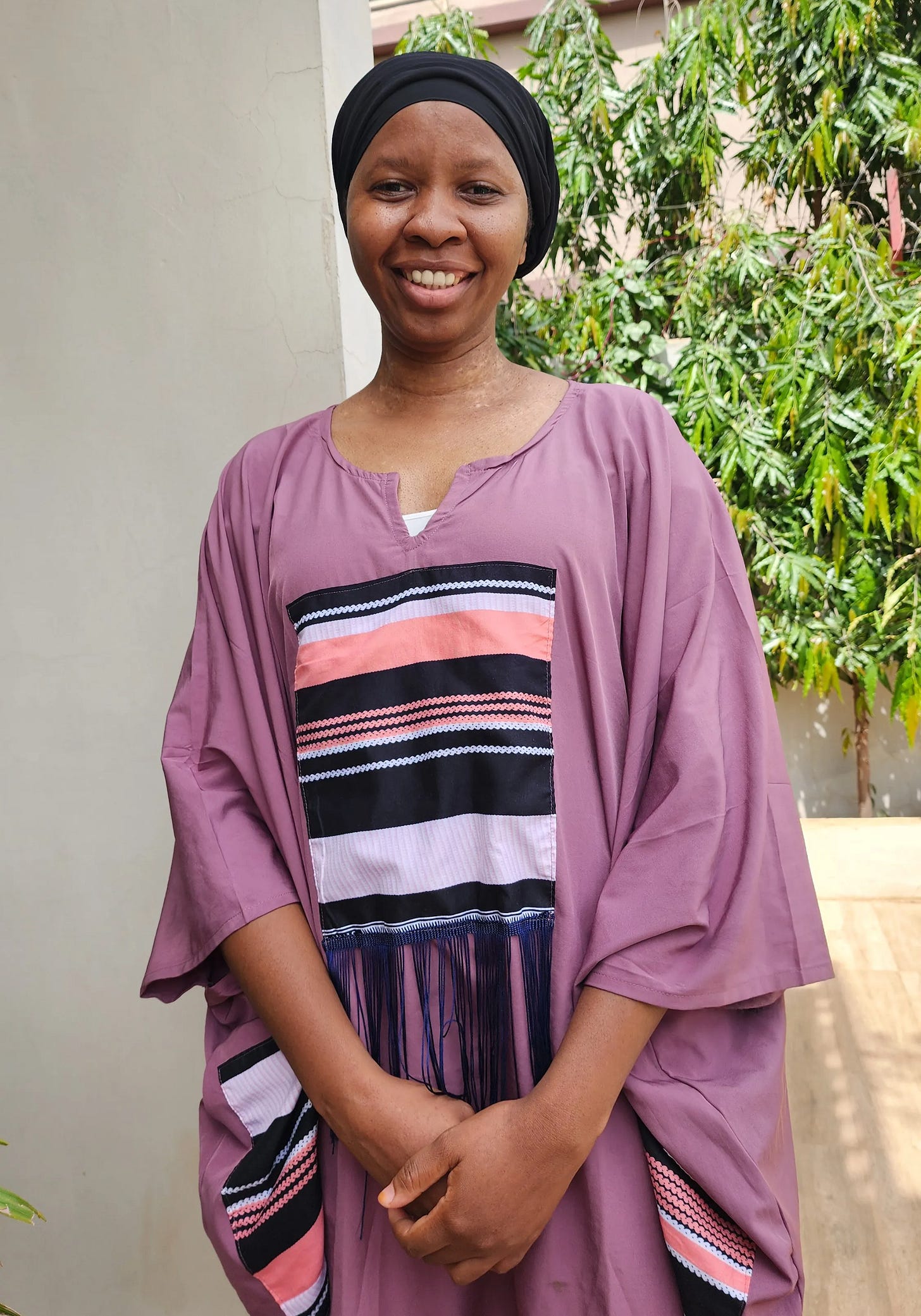
Meet Fatoumata D. , UX/UI designer and proud alumna of Kabakoo’s Digital Makers cohort.
“Before my training at Kabakoo, I didn’t even know what UX/UI design was. And speaking in front of people? That was a real source of stress for me…” confided Fatoumata on her life before Kabakoo.
Through our core mindset-oriented work and digital skills modules, Fatoumata didn’t just acquire new skills, she discovered a new version of herself. One that knows her strengths, owns her voice, and stays motivated even when things get tough.
“Today, I genuinely love what I do. And the best part? I get to share what I’ve learned with other young people like me.”
From self-doubt to self-confidence. From learner to role model. Watch her video where she explains how she now mentors learners like her, at Kabakoo.
That’s the Kabakoo journey. And as you already know, c’est toujours le début du commencement.
Thank you for reading to the end! 💜🧡
Michèle & Yanick

